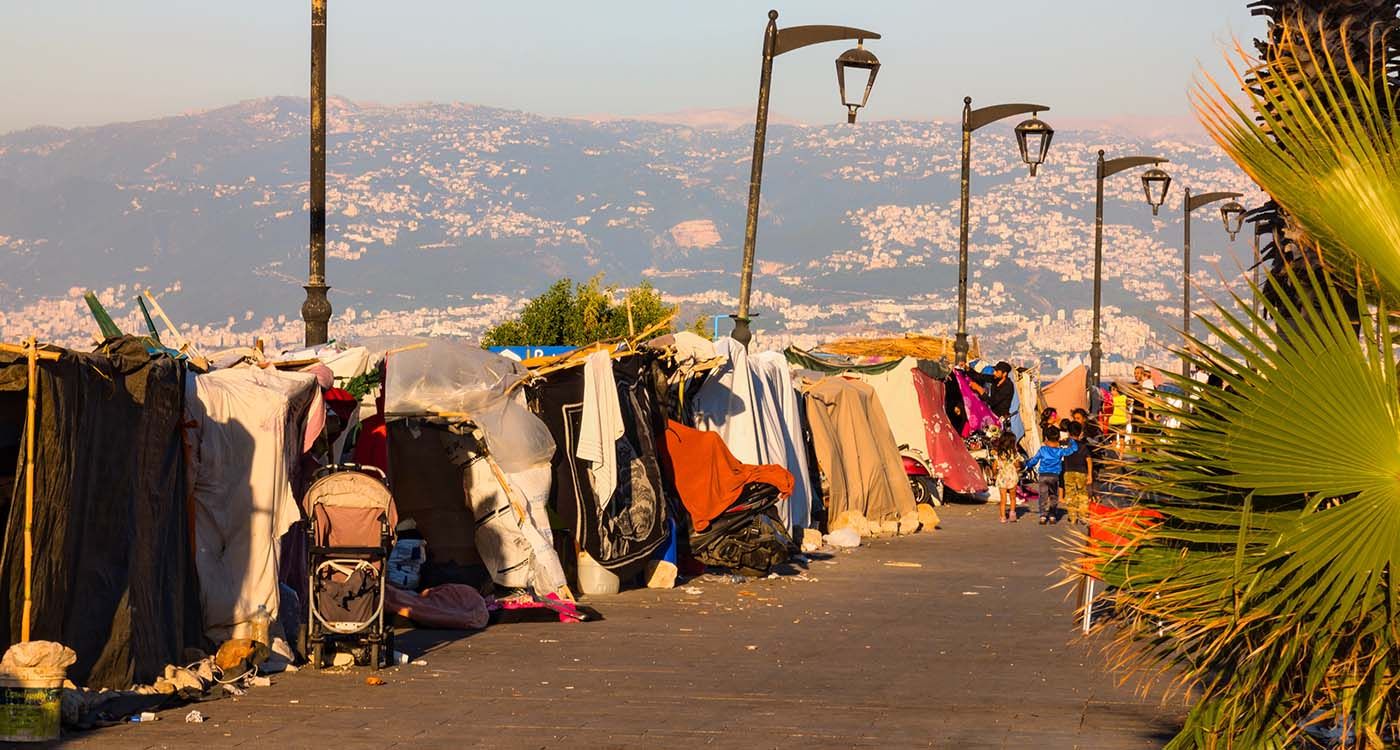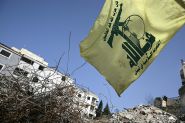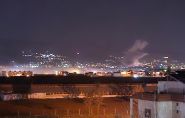
Amid Lebanon’s escalating political and security crises, discussions about the future of the state have become vital. The issue of the Shiite community and its stance toward the state and its institutions is particularly significant, especially as regional and local tensions increase due to the Israeli war. In this context, voices within the Shiite community advocate for a return to the state project and engagement with official institutions, stressing that protection and stability come from embracing a unifying project centered on Lebanon’s unity and sovereignty.
Amin: Hezbollah’s Weapons Have Brought Catastrophe to Lebanon
Commenting on this issue, journalist Ali Amin told This is Beirut, “There are various trends, and we cannot speak of a unified approach. Despite the diversity of opinions, one central idea emerges from dissenting voices: it is imperative that the State regains its role and authority, so that Lebanon is ruled by a truly Lebanese authority. This is not just the demand of the Shiite opposition or a single group; it is a national challenge. Hezbollah’s influence is a national issue. Calling it a ‘Shiite challenge’ is simply evading responsibility. It is up to all involved forces to play a key role, with broad Lebanese efforts necessary to change this reality.”
He added, “The chaos we face today stems from the Lebanese government’s complacency and collusion with Hezbollah. The Lebanese government, as the legitimate authority, must take a firm stance, condemning this infringement on state sovereignty and the flagrant violation of its institutions. This solution must emphasize the role of the official institutions—from the government to the parliament and down to the Lebanese army, all of which must fulfill their duties comprehensively. This is the way forward to find solutions to exit the crisis we’re in.”
Addressing the accusations from Hezbollah supporters that dissenters within the Shiite community are “Shiites of embassies,” Amin remarked, “It’s amusing that they label us this way, considering that they themselves are the ones cooperating openly with foreign embassies and Iran. If others were actually ‘Shiites of embassies,’ their material and security resources would be very different.”
Amin emphasized, “We are not against a relationship with Iran; we are against total allegiance to Iranian interests over national interests. The dissenters within the Shiite community have shown no signs of loyalty to any foreign state over Lebanon and its official institutions.”
Regarding Hezbollah’s weaponry, Amin said, “We have repeatedly stated that this weaponry should be part of a national defense strategy. Moreover, these weapons have proven incapable of protecting the Shiite community, the south, or the Bekaa region. The claim that these arms are essential is fundamentally flawed. Quite the contrary, they have only brought disaster to Lebanon. Had the Lebanese army been deployed along the borders, we would not have reached our current situation, which has led to a million displaced Shiites and allowed Israel unprecedented destruction of Lebanon.”
Amin concluded, “I believe the call for a return to the state and its institutions will resonate more within the Shiite community, but this requires collective effort from all parties, especially the state itself, which must assert its authority as the sole decision-maker. It is the state's weapons that ultimately protect Lebanon.”
Johari: The Idea That Security Forces Are Weak Is Invalid
In this context, Sheikh Abbas Johari said, “The idea is to work towards building the state and establishing it firmly in the minds of the Shiite community, clarifying that the state protects everyone and that we must be a part of it since we have no objectives beyond its borders. The state is our freedom and our future, through which we can repel any external enemy. Today, some attempted to defend themselves from outside the state’s framework, dividing Lebanese, Arab, and international opinion, giving the enemy an opportunity to pounce on them. The state is the essential foundation for the next phase, establishing it in the minds, hearts, and spirits of the Shiite community so that they adopt the state as the only means of self and societal protection.”
He added, “There must be a discourse assuring them that their security lies in the state and does not challenge their human, national, and community pride. A thoughtful, intelligent approach towards the Shiite community allows us to bring them into the fold of the state. Alienating them instead, by aligning with the enemy, will only make them more reticent and less open to dialogue.”
Johari also noted, “The idea that security forces are weak is now defunct. Today, we face intense, systematic bombardment, and the resistance can achieve success on its own territory. However, the approach of fighting like regular armies has failed. When such tactics ignore the balance of power, a revolutionary narrative is used to compensate, as we saw in Hassan Nasrallah's speeches. In his absence, it is clear that such rhetoric was flawed and not grounded in reason.”
Regarding the issue of Hezbollah's weapons, Sheikh Johari emphasized the need to integrate these arms within the national defense system under the authority of the Lebanese army. He stated that “these weapons have become a burden and must be incorporated into the state to be part of political decision-making.” He clarified that no faction should be able to use them outside of a governmental framework.
He added that if the Lebanese can build mutual trust and integrate these weapons into the defense system, it would help prevent a civil war. However, he warned against any form of provocation, stressing that a demand for disarmament perceived as surrender could harm the country. The discourse, he concluded, must remain wise and thoughtful, aiming to heal an ailing body without provoking dangerous reactions.
Murad: The Shiite Community Should Embrace the Concept of National Belonging
For his part, political activist Dr. Hadi Murad said, “What we seek today is to avoid terms like ‘Shiite opposition’ and instead use ‘moderation,’ in support of the state project. Sectarian narratives cannot build a nation; they end with the passing of certain leaders, as seen in the Christian and Sunni communities with the assassinations of Bachir Gemayel and Rafik Hariri, respectively. We don’t want to repeat this past, relying on leaders who drive communities into sectarianism. The Shiite community must embrace national belonging, aligning with the army and people. Other options have failed, and we must emphasize that the Shiite community is part of Lebanon’s fabric.”
He added, “We are not confronting Hezbollah, which has political legitimacy in Lebanon. Rather, we want it to be part of the landscape alongside other parties, and for the Shiite community to open up like other sects. The Shiite community was the only one that remained politically unbroken in the 2022 elections, mainly due to the presence of arms. That era is fading. We do not aim to dismantle the party. Our goal is to bring this environment together, offering them a new voice grounded in state support—a voice that Hezbollah’s narrative has overshadowed for 40 years.”
Murad highlighted that achieving this project “requires international and Arab support. The Shiite community is in crisis and has suffered immense destruction due to Hezbollah’s policies, which have entangled Lebanon in endless conflict. This monopolistic logic opposes the Shiite spirit, which originally stood with Hussein in Karbala for justice. The Shiite community needs a safe refuge, and the only path is through Arab relations and a return to statehood. As Musa Sadr said, the Shiites in Lebanon are Arabs, and it is on this basis that we build the project of reintegrating the Shiite community into the state.”



Comments